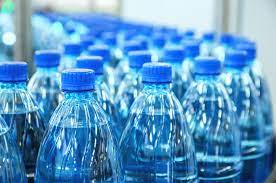The Truth Behind Bottled Water: Examining the Pros and Cons of This Popular Beverage
Bottled water is a ubiquitous beverage, lining the shelves of supermarkets, vending machines, and convenience stores worldwide. It's hailed for its convenience, purity, and portability, yet scrutinised for its environmental impact, costs, and health implications. Let's delve into the intricate web of advantages and drawbacks surrounding this popular thirst-quencher.

The Pros of Bottled Water
Convenience at Your Fingertips
The primary allure of bottled water is its convenience. In a fast-paced world, it's easily accessible, ready to grab on the go, eliminating the need to seek out public drinking sources.Assured Quality Standards
Bottled water often undergoes rigorous quality checks, adhering to strict regulatory standards. Consumers gravitate towards it for the perceived purity and safety it offers, especially in areas with questionable tap water quality.Portability and Hydration
Its portable nature makes it a go-to choice for outdoor activities, travel, and emergencies, ensuring hydration anytime, anywhere.
Delving into the Drawbacks
Environmental Impact: The Plastic Predicament
The surge in single-use plastic bottles poses a grave threat to the environment. From production to disposal, plastic bottles contribute to pollution, harming marine life and clogging landfills.Economic Costs and Resource Depletion
Despite its widespread availability, bottled water comes at a considerable cost. The extraction and packaging of water demand significant resources, including oil for plastic production and energy for transportation.Health Concerns
Surprisingly, the safety of bottled water isn't foolproof. Research suggests that certain types of plastic bottles may leach harmful chemicals, impacting human health over prolonged use.
Addressing the Alternatives
Filtered Tap Water
Investing in home filtration systems or using filtered pitchers offers a sustainable and cost-effective alternative to bottled water. It ensures safe drinking water without contributing to plastic waste.Reusable Bottles
Embracing reusable bottles made from materials like stainless steel or glass provides a sustainable, eco-friendly way to stay hydrated without adding to plastic pollution.
Making Informed Choices
Despite its convenience, bottled water is not without its controversies. However, informed decisions can mitigate its drawbacks:
Opt for reusable alternatives to reduce plastic waste.
Support initiatives promoting tap water quality and accessibility.
Stay informed about the source and credibility of bottled water brands.
The Primary Allure of Bottled Water is its Convenience
Bottled water, with its widespread availability and easy accessibility, has become an integral part of daily life for many. Its primary allure lies in the convenience it offers. Let's delve deeper into why this convenience factor has made bottled water a go-to choice for hydration and the implications associated with this prevalent beverage.
The Convenience Factor: Key Highlights
On-the-Go Hydration
The primary draw of bottled water is its sheer convenience. It's readily available, eliminating the need to search for public drinking fountains or carry reusable containers. This accessibility makes it an attractive option for those leading fast-paced lives.Portability and Accessibility
The ease of carrying a bottle of water wherever one goes is unmatched. From the gym to the office or while commuting, the portability of bottled water fits seamlessly into various lifestyles.Perceived Purity and Safety
Bottled water is often marketed for its purity and safety. Many consumers trust it as a reliable source of clean drinking water, especially in areas where tap water quality is a concern.
The Impact on Daily Life
Convenience vs. Environmental Concerns
While bottled water offers immediate hydration, its convenience comes at an environmental cost. The surge in single-use plastic bottles contributes significantly to plastic pollution, impacting ecosystems and marine life.Economic Implications
Despite its accessibility, the cumulative cost of regularly purchasing bottled water can strain budgets. Moreover, the production and disposal of plastic bottles demand considerable resources, adding to environmental concerns.
Health and Environmental Considerations
Health Implications
The safety of bottled water isn't foolproof. Certain plastic bottles may leach chemicals that can pose health risks over prolonged use. Additionally, the environmental impact of plastic pollution indirectly affects human health through water and food contamination.Sustainable Alternatives
Embracing alternatives like filtered tap water or using reusable bottles made from eco-friendly materials offers a sustainable approach to hydration. These alternatives reduce plastic waste and promote environmental responsibility.
Making Informed Choices
As consumers, understanding the trade-offs of convenience versus sustainability is crucial:
Reusable Options: Invest in reusable bottles and portable water filters for a sustainable and cost-effective approach to hydration.
Supporting Initiatives: Advocate for initiatives promoting tap 6L box of water quality and accessibility while reducing plastic waste.
Conclusion: Balancing Convenience and Responsibility
Bottled water remains a symbol of convenience in a hectic world. Yet, its ecological footprint and potential health implications warrant a thoughtful approach to consumption. By understanding its pros and cons, embracing alternatives, and advocating for sustainable practices, we can strike a balance between convenience and environmental responsibility in our quest for hydration.
Whether you're reaching for a plastic bottle or choosing a reusable one, the decision you make ripples through the environment. It's the small choices that collectively create a significant impact on our planet's health.
From the convenience it offers to the environmental price it extracts, the truth behind bottled water is multifaceted, encouraging us to reevaluate our choices and strive for a sustainable future.



Comments
Post a Comment